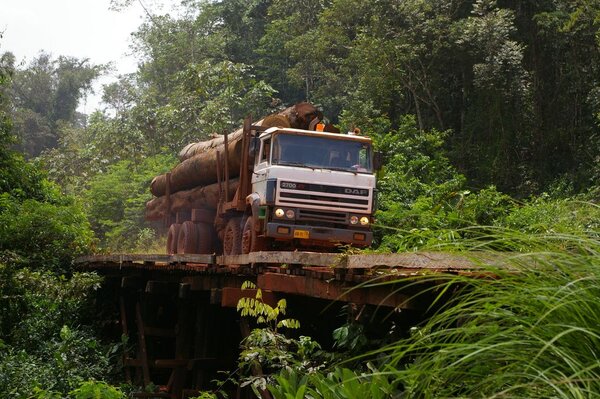As a result of globalised markets and increasing demand, many forests, especially in the tropics, are being overexploited. Unregulated deforestation is leading to large-scale forest loss. The global forest area has been reduced by around 4.7 million hectares every year since 2010. Since 1990, 81 million hectares of primary forest have disappeared. That is more than the total area of Germany, Austria, Switzerland and Italy combined. As a result, biodiversity is declining, many tree species are endangered and new, lesser-known species are coming onto the market as "substitute woods" - sometimes advertised with properties that they do not have.
The Washington Convention on International Trade in Endangered Species (CITES) lists endangered tree species and limits their trade. . For species with the highest protection level (CITES Appendix 1) there is a strict trade prohibition, similar to that for ivory. Species in the second and third protection level can only be traded under strict regulations. The convention thus protects endangered tree species without preventing naturally sustainable forestry.
The "Forest Law Enforcement, Governance and Trade" (FLEGT) action plan launched by the EU in 2003 aims to curb abusive practices in the area of illegal logging and the import of this timber. The German government supports this action plan, which is intended to lead to more reliable imports of legally produced timber products through partnership agreements with producer countries. This will also support the implementation of sustainable forest management in tropical countries.
The EU Timber Regulation (EUTR), which has been in force since March 2013, prohibits the marketing of illegally harvested timber. All market participants who place timber and timber products on the EU market for the first time are obliged to apply a due diligence system.
The German Timber Trade Security Act (HolzSiG) transposes the EU Timber Regulation and the measures of the EU FLEGT Action Plan into national law.
The EU Regulation for Deforestation-free Products (EUDR) was adopted in May 2023. It must be implemented from 30 December 2024 and replaces the EUTR. Under the EUDR, relevant commodities and products may only be placed or made available on the EU market or exported from the EU if they are deforestation-free, have been produced in accordance with the relevant legislation of the country of production and are covered by a due diligence declaration.
In Germany, the Federal Agency for Agriculture and Food (BLE) is the competent authority for the inspections of market participants prescribed in the EUTR and EUDR. The controls include visits of the timber importers and sampling for further analysis of declared species and origin. The competence centre is the scientific institution that determines the type and origin of wood in cases of doubt.








